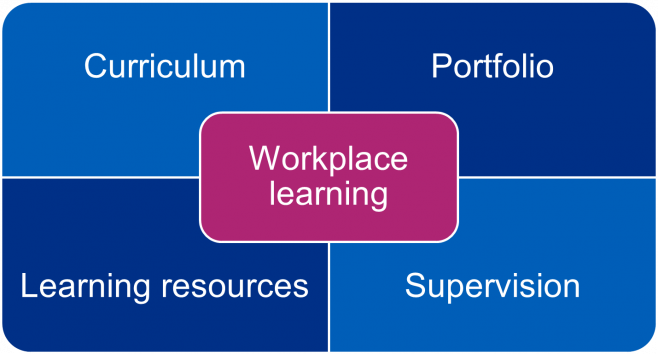Information for learners
Find out more about the newly qualified pharmacist pathway and how you can enrol.
Learn moreYou are here
The NHS England Newly Qualified Pharmacist pathway aims to link the initial education and training reforms to a continuum of development into post-registration. The pathway is intended to help pharmacists make the transition to more independent learning and acts as a stepping-stone towards enhanced and advanced practice.

The goal is to establish lifelong learning along the pharmacy education and career continuum.
This optional pathway is designed for learners across all sectors of pharmacy, to help them meet their development needs as they enter newly qualified practice. This will enable pharmacists to demonstrate their capabilities and should facilitate a more flexible workforce who can move between sectors.
By working with partners and stakeholders, we have identified four core elements that will contribute to developing newly qualified pharmacists' learning and growth:

This learner-led pathway has been designed to integrate with work commitments and complement existing workplace and postgraduate learning. It is designed to provide a consistent approach to training across service providers and across organisations.
There will be no mandated assessments or time out of practice. Structured learning events (SLEs) will take place in the workplace, enabling your educational supervisor greater flexibility and responsibility over assessing your progress against the RPS post-registration foundation pharmacist curriculum.
The pathway is designed to help you develop and progress in your role by:
The GPhC has removed the requirement of two years’ practice needed before starting an independent prescribing course.*
It has been replaced by the following requirement:
“applicants must… have relevant experience in a pharmacy setting and be able to recognise, understand and articulate the skills and attributes required by a prescriber. Applicants must also identify an area of clinical or therapeutic practice on which to base their learning.”
The newly qualified pharmacist pathway does not include an independent prescribing qualification. It is, however, mapped to the RPS post-registration foundation pharmacist curriculum learning outcomes which have been designed to develop prescribing competence. Using these learning outcomes will help you to develop the skills and competence you need to prepare for a prescribing course, and achieve the requirement listed above.
Find out more about our work to support independent prescriber training for pharmacists
*Although the GPHC has removed the requirement for two years’ practice before completing an independent prescribing qualification, universities providing accredited courses will need to continue to apply the previous entry requirements until they have been approved against the revised standards. Your chosen university will have more information about their specific entry requirements.
Find out more about the newly qualified pharmacist pathway and how you can enrol.
Learn moreFind out more about the role of the newly qualified pharmacist pathway educational supervisor.
Learn moreFind out more about the newly qualified pharmacist pathway resource library.
Learn more